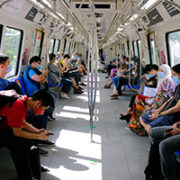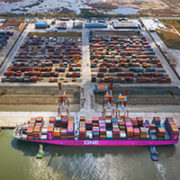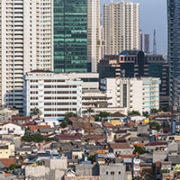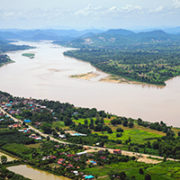Archive | Regional cooperation and integration RSS feed for this section
Regional cooperation and integration, Social development and protection
 Governance and public sector management, Regional cooperation and integration
Governance and public sector management, Regional cooperation and integration
 Governance and public sector management, Regional cooperation and integration
Governance and public sector management, Regional cooperation and integration
 Economics, Health, Regional cooperation and integration
Economics, Health, Regional cooperation and integration
 Energy, Regional cooperation and integration
Energy, Regional cooperation and integration
 Finance sector development, Governance and public sector management, Health, Regional cooperation and integration
Finance sector development, Governance and public sector management, Health, Regional cooperation and integration
 Economics, Industry and trade, Regional cooperation and integration
Economics, Industry and trade, Regional cooperation and integration
 Economics, Governance and public sector management, Regional cooperation and integration
Economics, Governance and public sector management, Regional cooperation and integration
 Economics, Regional cooperation and integration
Economics, Regional cooperation and integration
 Agriculture and natural resources, Infrastructure, Regional cooperation and integration
Agriculture and natural resources, Infrastructure, Regional cooperation and integration

Transforming ASEAN: Advancing Regional Integration, Social Inclusion, and Environmental Sustainability

ASEAN's rapid economic growth and robust post-COVID-19 recovery are colliding with rising social challenges and escalating climate risks.
Will the G7 Apulia Summit Follow Think Tanks to Rearticulate Multilateralism?

Think tanks have demonstrated the benefits of greater cooperation.
How T20 and partners can give rise to impactful solutions to global challenges

Think20 has become a mechanism for providing research-based policy recommendations to address shifting global challenges.
Toward an ASEAN COVID-19 travel balloon

While financial markets have responded strongly to the emergency-use authorization of various coronavirus disease (COVID-19) vaccines in several countries, the economic impacts will take much longer to materialize. One reason for this is that vaccinating 60% or more of populations to achieve herd immunity will take time. Reaching herd immunity is critical given the possibility that those vaccinated may still be infectious, despite being immune to the disease.
Diversification of solar PV suppliers for sustainable energy during the COVID-19 crisis

Experts are increasingly acknowledging the vulnerability of the global solar photovoltaic (PV) value chain due to the concentration of manufacturing capacity in only a few countries, such as the People’s Republic of China (PRC) (Zhai 2020). In Japan, although solar power comprised only 7% of the country’s total power generation in 2018, it contributed to one-third of power from renewable sources. Given this high share of solar power in renewable energy sources, disruption in the availability of solar PV may have adverse consequences on the sustainability of renewable energy power generation.
The impacts of COVID-19 on financial stability and regional financial safety nets in ASEAN

The Association of Southeast Asian Nations (ASEAN) is making strong efforts to maintain financial stability amid the coronavirus disease (COVID-19) pandemic, mostly through national financial emergency measures for each member state. As a region, ASEAN has not yet formed a regional financial safety net to deal with a crisis like COVID-19.
The upgraded ASEAN-People’s Republic of China Free Trade Agreement could matter, big time

In 2015, the Association of Southeast Asian Nations (ASEAN) and the People’s Republic of China (PRC) signed an Upgrade Protocol to improve the original Framework Agreement for the ASEAN-People’s Republic of China Free Trade Area (ACFTA) as well as their Agreement on Trade in Goods, Services, and Investment. The Upgrade Protocol entered into force in July 2016, and implementation will start from August 2019.
Tackling the challenge of growing inequality in Asia

Income inequality is one of the most profound social, economic, and political challenges of our time. A survey conducted by Pew Research Center (2014) found that more than 60% of worldwide respondents regard the gap between the rich and the poor as a major concern. Piketty (2014) draws the unequivocal conclusion that growing inequality between the rich and the poor—between the owners of capital and the rest of society—is the normal state of affairs under capitalism, and that periods of decreasing inequality, such as during a post-war boom, are the exception, not the rule.
Greater partnerships for the effective management of labor migration in Asia

The pace and size of labor migration have been on the rise in past decades, largely due to the different stages of economic development across Asia. Labor migration flows from Asia peaked in 2015 and dropped in the following 2 years, falling to 5.2 million in 2017, the lowest level since 2011.
Perspectives on Mekong-Japan cooperation for inclusive growth and mutual benefits

Rapid economic development in recent decades has transformed Southeast Asia and prepared the region to join international production networks, which allow greater exports of manufacturing products, textiles, and other primary high-quality valued added products to the international market. This economic development has been achieved thanks to investments from around the globe into the region as a result of a favorable labor force, connectivity and innovation growth, and regional political stability as driven by the Association of Southeast Asian Nations (ASEAN) vision.


Search
Subscribe / Connect to Asia Pathways
Subjects
- Agriculture and natural resources
- Blog
- Capacity development
- Climate change
- Economics
- Education
- Energy
- Environment
- Finance sector development
- Gender
- Governance and public sector management
- Health
- Industry and trade
- Information and Communications Technology
- Infrastructure
- Miscellaneous
- Population
- Poverty
- Private sector development
- Regional cooperation and integration
- Sanitation
- Social development and protection
- Transport
- Uncategorized
- Urban development
- Video Blog
- Water
Recent Posts
- Transforming ASEAN: Advancing Regional Integration, Social Inclusion, and Environmental Sustainability
- Development of the Creative Economy in Asia and the Pacific
- Kashima City’s Great Transformation: Where Industry Meets Community
- Mechanization Driving the Future of Agriculture in Asia
- Natural Capital: Valuing Nature to Protect and Restore Ecosystem Services for Sustainable Development




Recent Comments